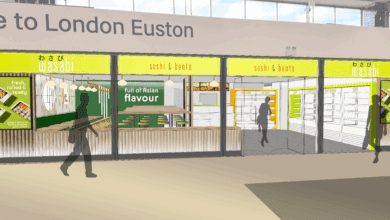
Register to get 1 free article
Reveal the article below by registering for our email newsletter.
Want unlimited access? View Plans
Already have an account? Sign in
Despite current economic headwinds, many businesses in the hospitality sector are looking for new ways of furthering growth opportunities in the upcoming summer months. In their 2023 sector outlook, Barclaycard revealed that consumer card spending on hospitality and leisure increased 10.6% year-on-year in 2022, as the lifting of all Covid-19 restrictions encouraged Brits to shop in-store, eat and drink out and book holidays abroad. However, despite this, trade bodies in the UK are warning of a ‘summer slump’ this year due to concerns over soaring energy prices and recruitment challenges. Hence, it is vital for organisations to spend this time preparing and adapting business models to the ever-changing industry trends across the sector to unlock their potential this busy summertime.
Summertime trends
Tracking the newest and upcoming trends can give good insight into where to best invest in services and experiences that will resonate with guests. Some of the more prominent trends that are likely to continue into summer include the accelerated interest in meat-free and vegan products, evolving consumer behaviour as living costs continue to soar and greater innovation in areas such as delivery options and subscription services.
Alongside this, there is ample opportunity for hospitality businesses to launch summer campaigns to coincide with some of the biggest events taking place across the UK, to encourage more visitors. For restaurants, having a bookable experience that offers a bespoke menu or live performances for customers inspired by the upcoming events such as the Chelsea Flower Show or Pride in London creates a unique experience for those attending and provides some useful social content. Bars and pubs can look to capitalise on a busy summer of sport including the FA Cup and Wimbledon by putting up screens for customers to watch, especially for those with large garden spaces.
Each of these present opportunities for innovation and development – and with this flurry of activity means plenty of potential to access incentives to fund investment. Having demonstrated great resilience and adaptability in recent years, many hospitality businesses have built great foundations in which to survive upon however, as the busy summer months approach, adapting these approaches to maximise growth will ensure these businesses continue to thrive. Whilst this may require some extra thought, planning and investment, it can also be the key to unlocking further revenue.
Invest now, save later
Government schemes and initiatives can be a significant incentive to invest – yet for many businesses it can be difficult to know where to look. Our own research showed that amid a lack of clarity around funding investment, SMEs spent almost three weeks a year on investigating their finance options. There remains a significant lack of communication over how government incentives work to fund ambition for SME owners, especially in the F&B sector.
The Spring Budget was highly anticipated across the industry and there were some significant changes. The announcement of full spending – replacing the super-deduction tax regime introduced during the pandemic – is a welcome boost to F&B businesses investing in capital expenditure and is expected to bring £27 billion in business tax cuts. However, in order for the new scheme to be a success, the sector’s future resilience needs to be supported by good regulation and a clear communication of what these benefits can bring. By doing so, it can have the potential to create an environment conducive to investment, opportunities and jobs.
Getting the right finance options
With branch closures and increasing digitalisation of banking services, gaining access to suitable finance options that can support these investments can be incredibly difficult. Often banks will offer fixed term loans as the default option and often at face value without understanding the intricacies of a business’ values. Approaching alternative channels, such as specialised brokers can open new routes to obtaining the finance needed to boost investment and offer solutions that are sustainable and support growth in the long term.
A relatively new product to the market, Business Cash Advance (BCA) is perfect for businesses like restaurants with uneven cash flows due to seasonal rises and falls in revenues. Cash advances of £10,000 to £300,000 are repaid as a percentage of card sales and therefore are aligned with performance. For the summer, where footfall is significantly increased, this offers a fantastic opportunity to boost revenue and allow hospitality businesses to maximise fully on their output.
Looking forwards
Despite ongoing turbulence in the economy, there are positive signs of recovery in the hospitality sector with pub chain JD Wetherspoon reporting its highest Easter week sales and busiest-ever Saturday, helping to galvanise hopes of an increased summer footfall. As the weather warms, there still remains unmatched potential for the sector to invest now and reap the rewards of making the most of the summer months and boost productivity and revenue.







